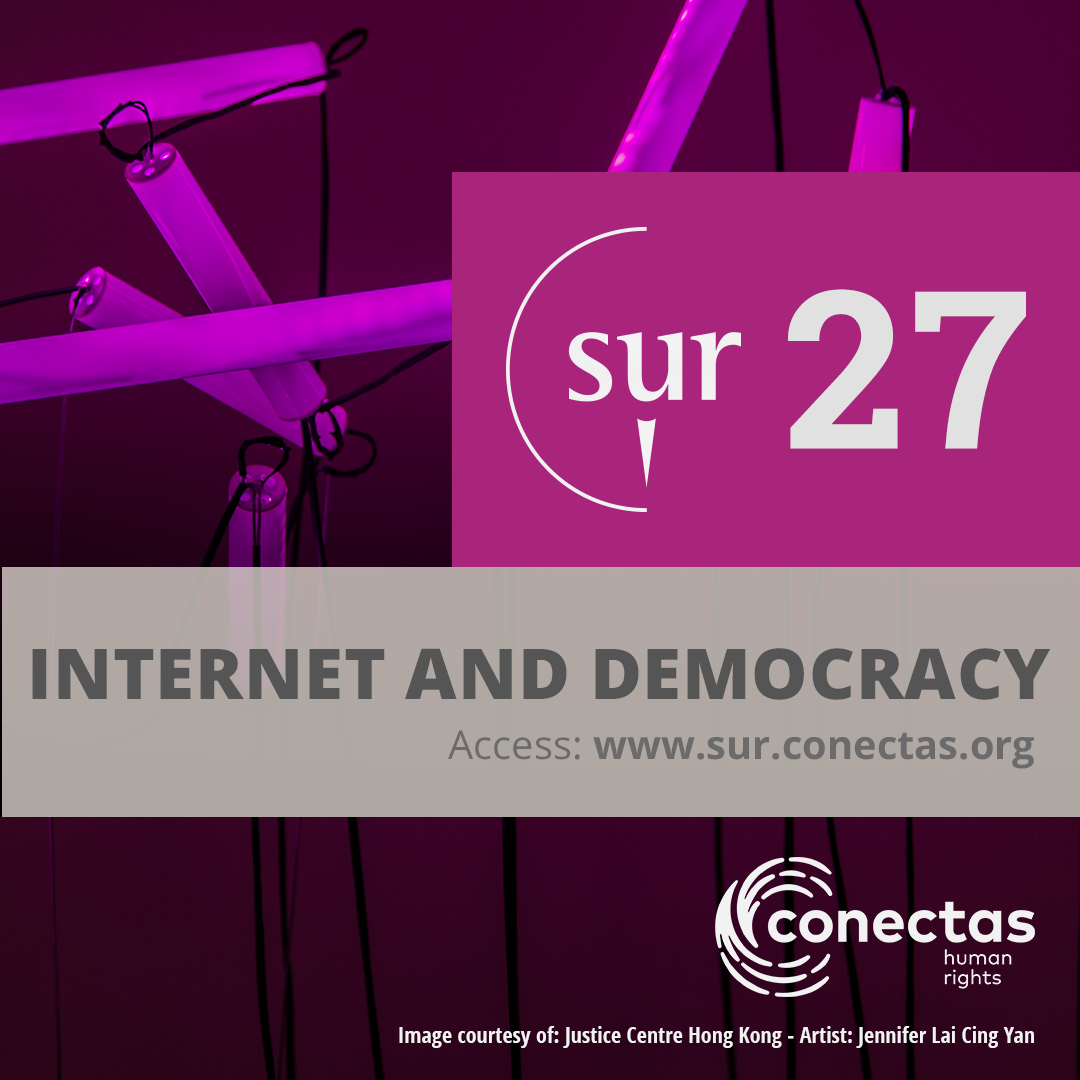Internet and democracy are the focus of the latest edition of the Sur Magazine
This publication, in partnership with Internet Lab and the Friedrich Ebert Foundation, looks into the impact of the internet on the democratic process in countries around the world

From the year 2000 to 2017 internet access increased around 1000% in the whole world, from a rate of 5.4% to 54% of people online, according to Internet World Stats data.
In the past decade, the exponential increase in the use of digital platforms, particularly social media, has significantly changed behaviour patterns in society and now influences political expression and electoral processes worldwide.
However, although it is clear that the internet directly affects democracy, it is still difficult to evaluate exactly how this happens and what the long-term future impact may be.
In an attempt to reflect on the different ways in which the internet is involved in the democratic process around the world, Conectas is publishing the 27th edition of Sur – International Human Rights magazine including a file on“Internet and Democracy” this Thursday, 26 July.
This publication carries ten original files on the issue, written by important authors from around the world. It questions whether current public policies are enough to ensure that society enjoys the positive aspects and limits the negative effects of the internet.
Are we about to enter an era of “Digital Colonialism”? How can civil society optimize its use of technology? What are the intrinsic responsibilities of using algorithms? Neutrality online, fake news, freedom of expression versus hate speech and media activism.
These are among the issues examined in this very current issue of Revista Sur, edited by Fábio Balestro, at Friedrich Ebert, and by the Internet Lab coordinators, Mariana Valente and Natália Neris, who also open the edition with a discussion on the paradoxical role of women in the feminist agenda on the internet.


